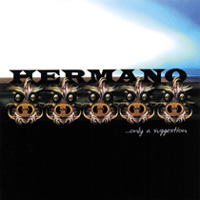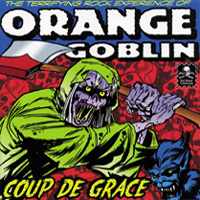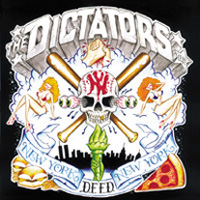 Hubert Selby Jr.
Hubert Selby Jr.
It/ll Be Better Tomorrow (MVD)
by Brian Varney
I’ll be honest, a full-length documentary of Hubert Selby Jr. is one of the last things I ever expected to see, but hey, if Shakes the Clown can be granted a DVD release, I suppose anything’s possible.
In case you’re in the dark as to Selby’s identity, shame on you. One of the finest novelists of our time, the never-prolific Selby only completed six novels and one collection of short stories during his 76 years, but the impact of this relatively small bibliography has been cataclysmic. His first novel is called Last Exit to Brooklyn and the chances are good that you’ve at least heard the title. Released in 1964 to equally intense fires of praise and damnation, the book still has the power to both shock and overwhelm today. It/ll Be Better Tomorrow spends a lot of its 79 minutes discussing this book, and rightly so. Though his fourth novel, Requiem for a Dream, is, thanks to Darren Aronofsky’s 2000 film version, almost as well-known to modern audiences, it’s Last Exit to Brooklyn that made Selby’s name.
It/ll Be Better Tomorrow is comprised mostly of interview footage, both with Selby and adoring fans and scholars like Richard Price, Jerry Stahl, and Nick Tosches, and it follows Selby’s life through his sickly childhood, his near-death bout with tuberculosis, his Last Exit to Brooklyn windfall, and subsequent fall into drug addiction and recovery, but it does so without following the standard three-act Behind the Music structure (rise, fall, return to glory) that dominates modern documentary. It’s beautiful and celebratory and crushingly sad and brutally ugly but ultimately redemptive and joyful because that was the way Selby wrote and the way he lived his life, even when he was at his lowest point. If anything, this film provides inspiration to those who are prone to unhappiness or depression, because Selby, who lived a life as full of pain and misery and anger as any I’ve ever encountered, wrote unflinchingly about the world in a way that made you experience every bit of both agony and joy that the world has to offer. And even when his books reached their darkest (which is to say, the absolute nadir of human experience), they never lose their core of hope and redemption. Selby’s books are possessed of a rare and hard-wrought beauty, and this documentary captures the essence of its unique craftsman.
(www.musicvideodistributors.com)



